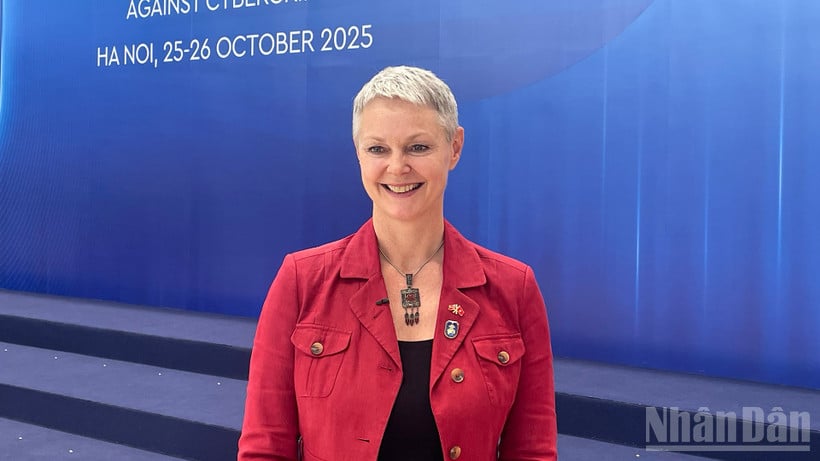
Affirming the role and proactive position in the international arena
Sharing with Nhan Dan Newspaper reporters, Ms. Hilde Solbakken - Norwegian Ambassador to Vietnam highly appreciated the role of Vietnam as the host country. According to her, the fact that Hanoi was chosen as the venue for an important international event "is clear evidence that Vietnam is increasingly affirming its positive position in the international arena".
Through this, Vietnam not only maintains a wide network of foreign relations, but is also recognized as a “neutral and trustworthy meeting place”, creating favorable conditions for the United Nations to choose Hanoi as the location for the opening ceremony of the first global convention on cybercrime.
Ambassador Solbrakken said the Hanoi Convention is “a landmark step forward in the global fight against cybercrime.” While previously the world had only regional agreements such as the Council of Europe Convention, now for the first time the international community has a global legal framework for coordinated action.
Meanwhile, Mr. Chandra Bahadur Dhami - Cybercrime Investigation Expert of the United Nations Office on Drugs and Crime (UNODC) expressed his recognition and congratulations. “I would like to congratulate the Government and people of Vietnam. This is a great step, demonstrating Vietnam's strong commitment to international cooperation in preventing and combating cybercrime,” he said.
From a professional perspective, he said that Vietnam is also the first country this year to send a group of students to the Doha Regional Center to participate in a training course on digital forensics and electronic evidence. “The group of students came from the Supreme People’s Procuracy of Vietnam. They were trained on how to collect and process digital evidence. This is a testament to Vietnam’s proactiveness and willingness to learn in this field,” said Mr. Chandra Bahadur Dhami.
For his part, Mr. Aaron Walsh, Director of the Knowledge Foundation, highly appreciated Vietnam's role in coordinating and hosting the event.
“Vietnam has truly demonstrated its capacity and proactive spirit, not only as a host country, but also as one of the pioneering countries in implementing this Convention,” Mr. Walsh emphasized. “Signing is just the first step, what is more important is the implementation and application of commitments in practice.”
Solutions for global cybersecurity
Diplomats and experts from the United Nations and partner organizations also see the Hanoi Convention as a new technical and legal foundation for global cybersecurity.
From a professional perspective, Mr. Chandra Bahadur Dhami - Cybercrime investigation expert of the United Nations Office on Drugs and Crime (UNODC) said that the Convention's official signing is "a historic turning point in international cooperation to combat cybercrime".
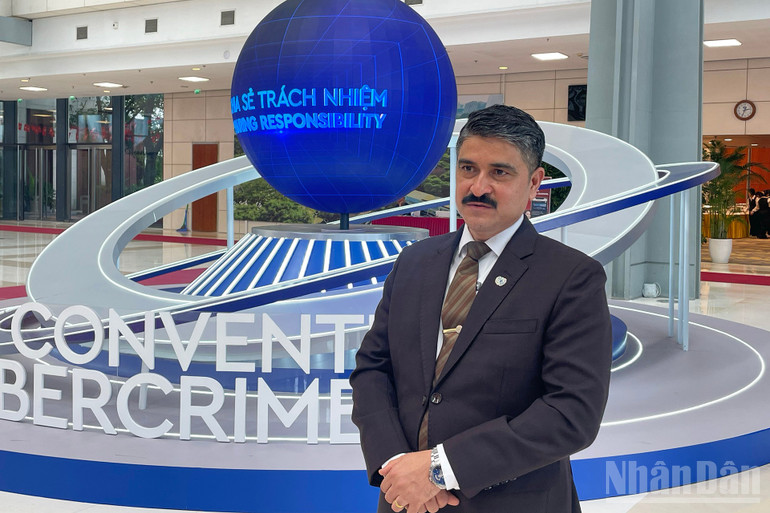
The Convention’s ultimate goal, he said, is to strengthen the capacity to prevent and combat cybercrime through capacity building and technical assistance to member states. And UNODC is working to train law enforcement, investigators, prosecutors and judges – the pillars of the criminal justice system.
Another key element of the Convention is the sharing of electronic evidence between countries. This has been a major challenge in cross-border investigations, according to Mr. Dhami. “When the Convention comes into force, cooperation and exchange of digital evidence will become easier and faster. In reality, the offender is in one country, the victim is in another, and the data is in a third country, so a global evidence-sharing mechanism is an indispensable tool,” he affirmed.
Another "problem" for the investigative force pointed out by the UNODC expert is the immateriality of electronic evidence: "In traditional crimes, you can see the knife, the gun. But in cyberspace, evidence cannot be held. This is the biggest difficulty that investigators have to face."
To address this, UNODC is adopting new training methods that enable trainees to “understand and see” digital evidence in a simulated environment. UNODC calls it “making the invisible visible” by introducing virtual reality (VR) devices that allow trainees to enter a simulated cyberspace to directly observe how criminals operate.
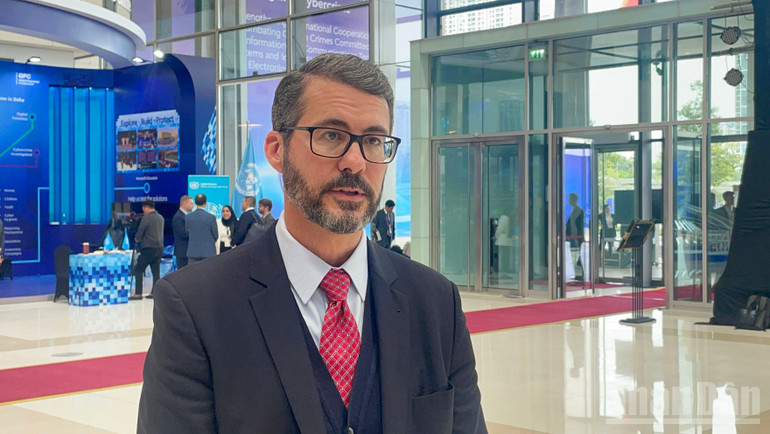
Sharing the same view, Mr. Aaron Walsh - Director of Knowledge Foundation said that the Hanoi Convention is a "document that updates and modernizes the international cooperation framework in the field of cybercrime", with two breakthroughs: Data sharing and protection of victims' rights.
“The special feature is the ability to help victims retrieve leaked images, videos or personal data, thereby restoring human dignity and ensuring justice is served,” he emphasized.
Regarding future implementation, he said that countries should be provided with technical assistance and specialized training through the United Nations Global Programme on Cybercrime. “This programme helps countries to apply the Convention in their legal systems in a practical and effective way,” he said.
For the Norwegian Ambassador to Vietnam - Ms. Hilde Solbakken, she said that capacity building is one of the essential pillars of the Convention, aiming to support developing countries to build their capacity to prevent and combat cybercrime. This will help countries receive technical support, training and advice from the United Nations as well as other international organizations.
Ms. Hilde Solbakken also frankly admitted that cybercrime is a big challenge for Norway as well as many other countries. The rapid development of technology opens up many opportunities, but at the same time also creates conditions for criminals to take advantage of to expand illegal activities.
“As the UN Secretary-General has said, cybercrime is rapidly adapting to every technological advancement. Therefore, only international cooperation can help us respond effectively and protect cyberspace for all humanity,” the Ambassador emphasized.
Source: https://nhandan.vn/cau-noi-cua-niem-tin-trong-the-gioi-so-an-toan-post918261.html






![[Photo] Party Committees of Central Party agencies summarize the implementation of Resolution No. 18-NQ/TW and the direction of the Party Congress](https://vphoto.vietnam.vn/thumb/1200x675/vietnam/resource/IMAGE/2025/10/27/1761545645968_ndo_br_1-jpg.webp)
![[Photo] National Assembly Chairman Tran Thanh Man receives Chairman of the House of Representatives of Uzbekistan Nuriddin Ismoilov](https://vphoto.vietnam.vn/thumb/1200x675/vietnam/resource/IMAGE/2025/10/27/1761542647910_bnd-2610-jpg.webp)
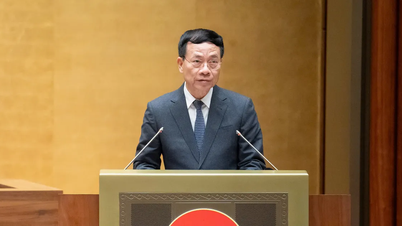






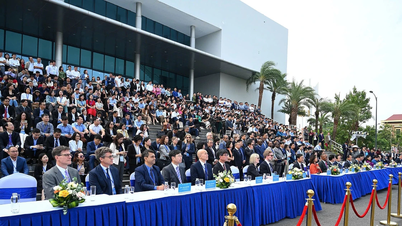





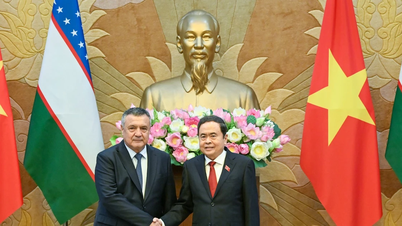

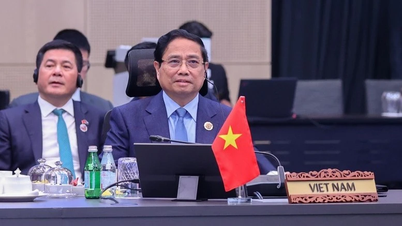
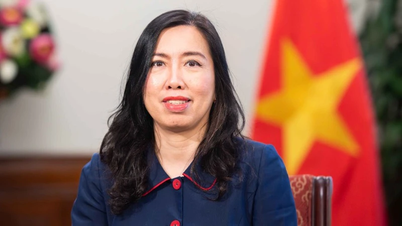
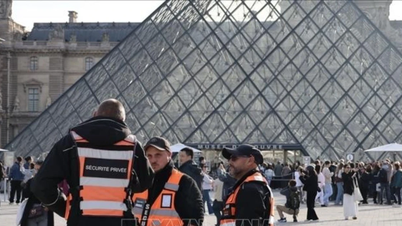
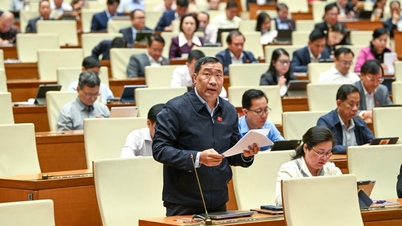






















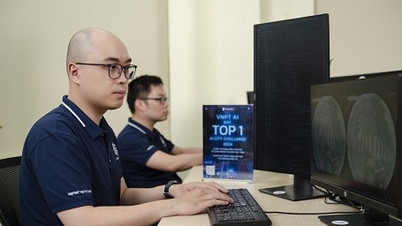
















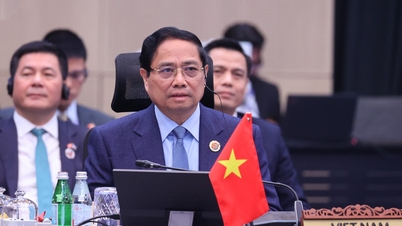






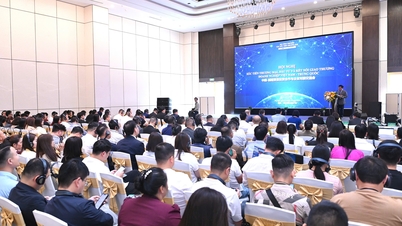

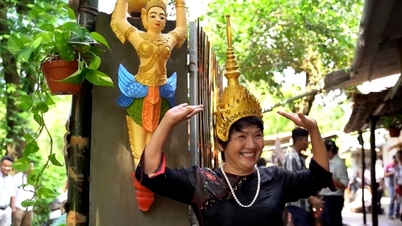



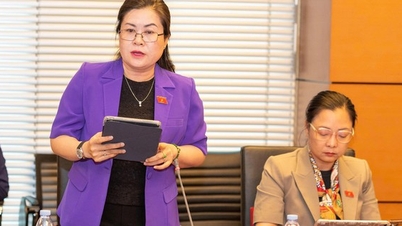
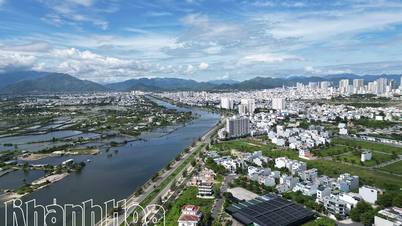

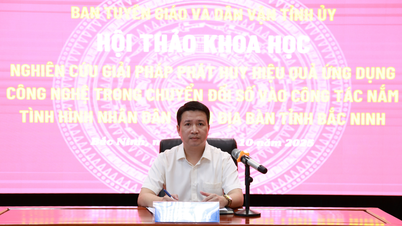

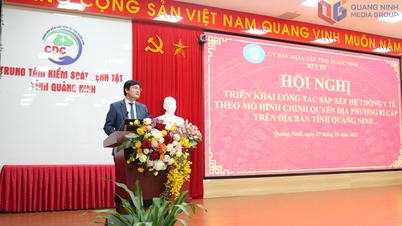

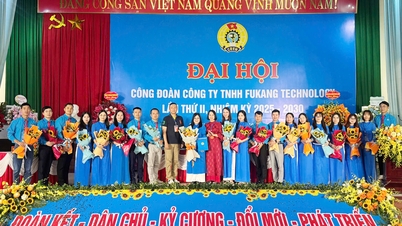

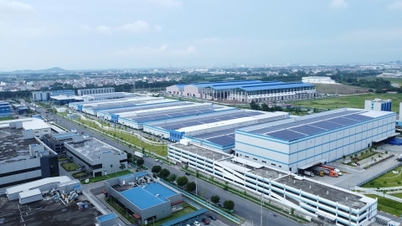















Comment (0)